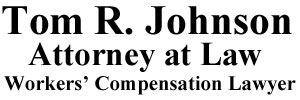Workers’ Compensation Insurance vs. Group Health:
Comp Insurers Deny 1,748 Times as many Medical Treatments
California Workers’ Compensation Insurers
Deny so many Doctors’ Recommendations
Because, without Meaningful Penalties, They Can
Sacramento, CA – The California Applicants’ Attorneys Association (CAAA), whose members represent Californians injured on the job, today continued its series comparing quality health care measures in workers’ compensation insurance to group health insurance. The second release compares the frequency of Utilization Review (UR) denials of doctors’ recommended medical care. Workers’ compensation insurers denied 1,748 times as many treatments in one year as did group health insurers. For the 16,000,000 California group health patients, insurers denied 40,300 recommended treatments, while workers’ compensation insurers denied an estimated 3,500,000 doctors’ recommendations for just 800,000 patients.
“The avalanche of Utilization Review (UR) denials is preventing employees from healing and returning to work,” said CAAA President Jim Butler. “Why should California firefighters, peace officers, nurses and others hurt doing their jobs be so frequently denied recommended medical treatment? Californians would not stand for the massive denials of doctors’ recommended medical treatment that injured employees suffer in workers’ compensation. These insurers would be facing substantial penalties if they were providing group health insurance. But there are no meaningful penalties in workers’ compensation insurance, so insurers are free to deny legitimate treatment without consequence.”
“Hundred of millions of dollars are spent denying recommended medical treatment. Insurers’ Utilization Review (UR) denies over 3.5 million treatment requests annually. Excessive, costly Utilization Review (UR) threatens to undermine the anticipated cost savings from SB 863. Turning down 3.5 million doctors’ recommendations is an avalanche of denials that is keeping injured workers from healing and returning to work,” said Butler.
UR has almost quadrupled since 2005, and is one of the fastest-growing costs in California workers’ compensation insurance, costing several hundred million dollars per year. CAAA is urging a thorough overhaul of the UR process. “Overused and costly UR continues to threaten the integrity of the IMR process instituted in SB 863,” Butler said. “UR denies care even when the cost of denial is greater than the cost of the requested treatment. The cost of UR and IMR for an x- ray is much more costly than the x-ray itself. We call for the DWC to curb this abuse.”
Every California business is required by the State to buy workers’ compensation insurance, or to self-insure. Every Californian injured at work is required to go through the workers’ compensation insurance company for treatment and compensation. Injured workers are barred from seeking medical treatment outside the workers’ compensation system for work-related injuries. “Californians hurt at work are trapped in a system where delay and denial is the norm,” said Butler. “The contrast between medical care denials in the two systems is astounding.”
CAAA based its report on information from the Division of Workers’ Compensation (DWC) and the Department of Managed Health Care’s most recent complete-year report (2009).






